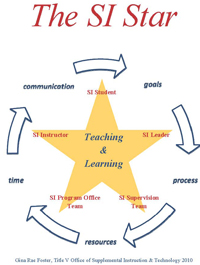There are many campus resources available for both faculty and students. All are encouraged to capitalize on these occasions-as well as incorporate these assets that are unique to our campus-into their academic and professional efforts.
 New events are being promoted as well as some preexisting ones such as the New and Junior Faculty Welcome Luncheons. The Annual Wellness Festival sponsored by the Student Health Center (http://events.lehman.edu/Calendar/EventList) is taking place next week outside of the Music Building on Tuesday, September 17th. Numerous vendors will be in attendance with free giveaways and free health screenings.
New events are being promoted as well as some preexisting ones such as the New and Junior Faculty Welcome Luncheons. The Annual Wellness Festival sponsored by the Student Health Center (http://events.lehman.edu/Calendar/EventList) is taking place next week outside of the Music Building on Tuesday, September 17th. Numerous vendors will be in attendance with free giveaways and free health screenings.
Another exciting development is the reopening of the renovated Student Life Building, where the campus clubs are headquartered and students can come to unwind and relax. There are many new and developing clubs going forward, including the newly minted Lehman Knights Chess Club. Students are strongly encouraged to participate in extracurricular activities around campus to ensure a well-rounded and pleasant experience at the college.
As some students start falling behind, it is important to note the many resources that the Lehman campus offers. There is the popular ACE Writing Center for those having trouble in their English classes or just needing some pointers in their writing. There is the Mathematics and Computer Science Learning Center located on the second floor of Gillet Hall with a multitude of tutors that specialize in their own math fields-such as algebra, calculus, etc. There is also The Science Learning Center which can be found on the first floor of Gillet Hall. All of these resources can be viewed on the Academic Center for Excellence (ACE) website. [Humanities Tutoring / Sciences Tutoring]


If a student is interested in more innovative learning strategies in a group setting, there is also the STAR Mentoring Program, which groups peer experts with those taking certain challenging courses (such as Accounting, Biology, Chemistry, or Psychology Statistics among many others). [SMC Program] STAR coaches sit in the corresponding course with the students and also group review sessions after class to supplement the lecture and work hand-in-hand with professors to tailor the material accordingly. Additionally, there is the Transfer Coach Program, which specializes in facilitating a smooth transition for transfer students to Lehman College, thus filling a void that was often requested prior to its incarnation. [Transfer Coach Program] These programs fall under the umbrella of the Lehman Teaching & Learning Commons (LTLC), located in the Old Gym Building, Room 118. [Lehman Teaching & Learning Commons Home Page]
Faculty are also welcome to take advantage of the resources that the LTLC offers such as informal faculty mentoring with Director Gina Rae Foster; walk-in hours to discuss concerns or issues and faculty social events like the regularly held and popular Coffee Hours. Events such as the Faculty Coffee Hours and others allow the opportunity for faculty and staff to network with and mentor each other and are encouraged to drop by and unwind from the stresses of grading and department meetings as well. [Faculty Social Events] New faculty have the opportunity of being able to attend the Lehman College New Faculty Seminars [NFS] which allows for the dissemination of information and resources that might not be readily available to them or that they were possibly not aware of. Different departments collaborate with the LTLC to provide a platform for new faculty questions, concerns or simple navigational issues.
These resources exist to be taken advantage of and to ensure that both faculty and students have an easier time navigating our wonderful campus.


